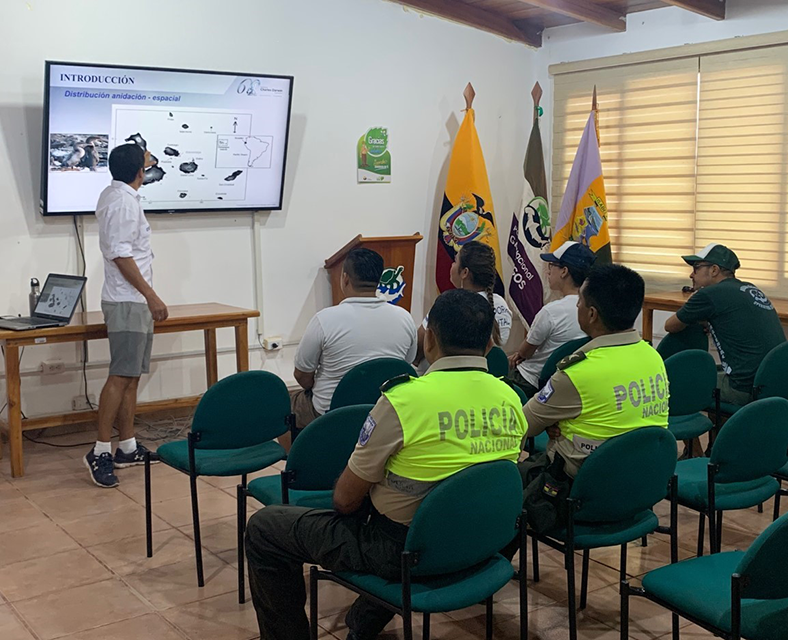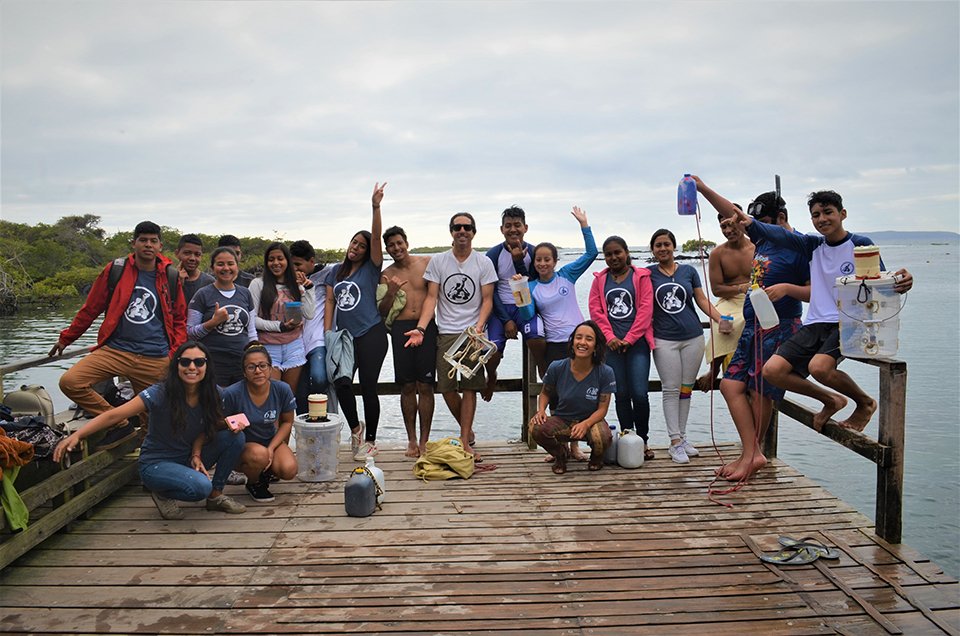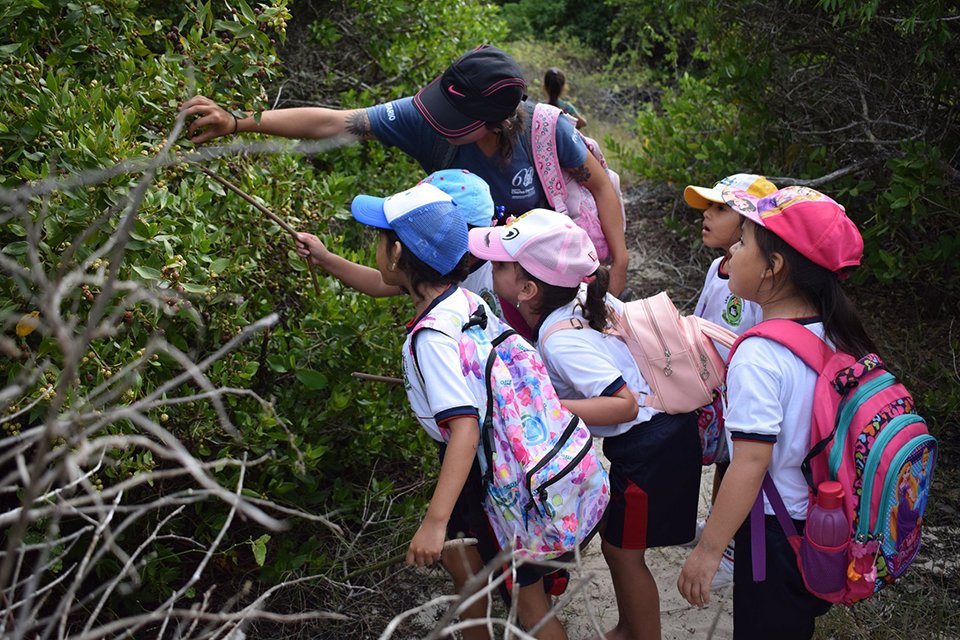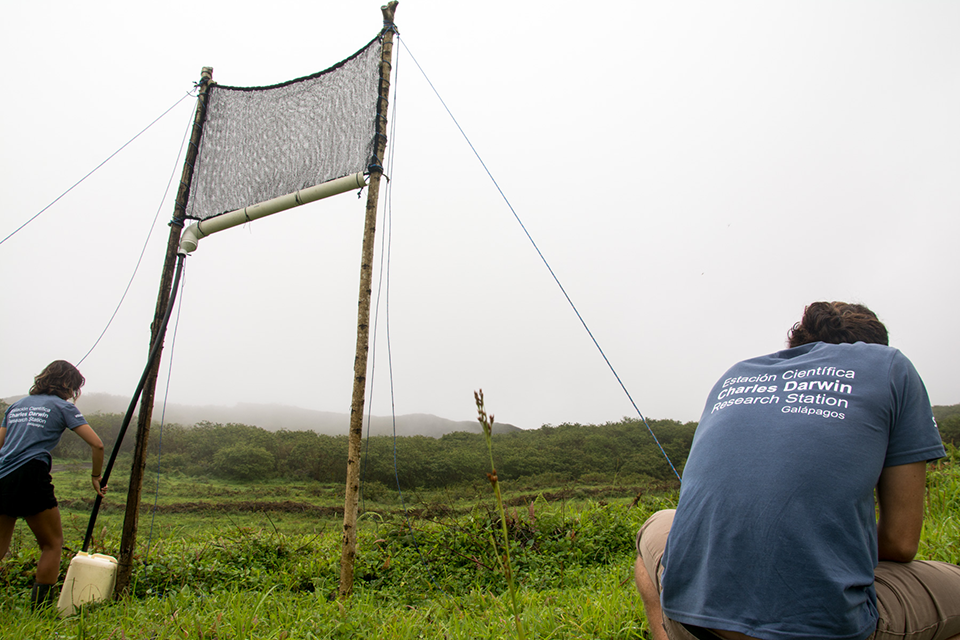Three years have passed since the institutional presence of the Charles Darwin Foundation (CDF) on Isabela was resumed in January 2017. During this time, we have gradually consolidated our presence on the island, largely thanks to the hiring of a coordinator, who acts as the main contact and representative of CDF in front of local institutions and the community. Among the various responsibilities, the coordinator provides us with support in our fieldwork, organizes events and presentations, identifies opportunities, generates innovative activities and creative projects according to the needs of the island.
Ernesto Bustamante Velarde had the great challenge of being elected as our representative on Isabela. The work that Ernesto caries every day is done in a professional way and, undoubtedly, he adds its essence and charisma. Ernesto shares his experiences and activities that have successfully taken place during the three years of arduous but rewarding management:
Monthly Talks Program
Since I arrived on Isabela Island, there has been a strong interest from various groups to learn about the scientific research generated by CDF in Galapagos. For this reason, one of the first suggestions made was to generate strategies that facilitate synergies between scientists and the community. As a result, at the end of 2017, we started the "Monthly Talks" program. In this program we facilitate the visit of scientists, to give talks about their projects and results to local institutions, naturalist guides, students and members of the community. Some of the institutions that have participated are the Galapagos National Park Directorate (GNPD), the Galapagos Biosecurity Agency and the Ministry of Agriculture.
This program is an excellent opportunity to disseminate and receive valuable information about our activities. In addition, it is a participatory space with the community, where actions are generated that reinforce the conservation and sustainability of the islands. So far we have held 28 talks by 13 scientists, with the participation of 409 attendees.
"Sharing the information provided in these talks with rangers, other institutions and community members is very important to be up-to-date on the progress and results of the CDF's scientific research. In this way, it contributes to form strategic allies for the conservation of the Galapagos" Eng. Jonnathan Romero, GNPD.

Sustainable Community Project
In 2018, we started an environmental education project called "Sustainable Community" as an alternative to the Student Participation Program for students of Stella Maris School (UEFSM). The project comprises five-practical modules related to the environment: sustainable agriculture, science, urban cleaning, theatre and sports, the latter includes yoga, surfing and paddle boarding.
Through "Sustainable Community" we want to raise awareness of environmental issues and motivate students to be agents of change for the conservation and sustainability of the islands. This project has been implemented in 2018 and 2019, and so far we have counted on the presence of 28 local students. The results show that participants gained knowledge about the environmental issues of the world and Galapagos, deepened the care of the environment and the need to change our behavior to look for a more sustainable ways of living.
"It is our good attitudes that will keep our planet in balance so that we can continue to enjoy what nature gives us" (Lady Pauta, Sustainable Community student, 2018)

Marine Mornings Project
In 2019, we launched the "Marine Mornings" project in Isabela. This project offers Natural Science teachers and their students the alternative of making field trips in different areas of the island. The aim of the project is to complement the theoretical classes of Natural Sciences and increase knowledge, through exploration, of coastal marine ecosystems and their biodiversity.
Marine Mornings was aimed at the students from six to sixteen years old of Isabela's three schools. In 2019, we made 36 trips with the participation of more than 450 students. The evaluation of the project indicated that the students acquired knowledge in the subjects taught during the activities. In addition, all the teachers involved considered the outings as a valuable source of knowledge, and that they would like to participate again next year.
"This was a great opportunity to put children and young people in touch with reality and their natural environment. No one loves what they don't know, it's a project that has served to teach natural sciences, motivate and create environmental awareness."Lic. Mayra Flores, Stella Maris School Director.

Harvesting Water Project
Finally, through the "Harvesting Water" project, we want to increase the amount of water available to incentivize sustainable agriculture and livestock on the island, increase the production of healthy food and reduce the dependence on food that exists with Santa Cruz and mainland Ecuador. Water is a scarce resource in the upper part of Isabela and is, therefore, one of the main limitations for agricultural production. Currently, we are testing the potential for mist water uptake with 1 m2 fog collectors prototypes in different sites in the rural area of the island. In 2020 we will complete the tests, to later select the beneficiaries and install three 40 m2 fog collectors on their farms.

In 2019, I was fortunate to have the support of a professional volunteer, Carla Zambrano, who, with her personality and knowledge has contributed extensively to our work. I want to thank Carla for her dedication, passion and especially the affection showed to the children and young people of Isabela.
In 2020 we plan to complete the project Harvesting Water project, execute a third version of the Sustainable Community project and a second version of the Marine Mornings Isabela project. In addition, we are looking at the possibility of opening a Science Club with community students.
However, we are aware that we are currently going through a global health crisis. We hope that this situation can be controlled as soon as possible, with the support of all, to prevent more people from being affected and then to be able to resume our activities. With regard to CDF Isabela, we hope that our presence on the island will continue to strengthen over time and in this way continue to contribute to the sustainable development and conservation of the magnificent enchanted islands.





